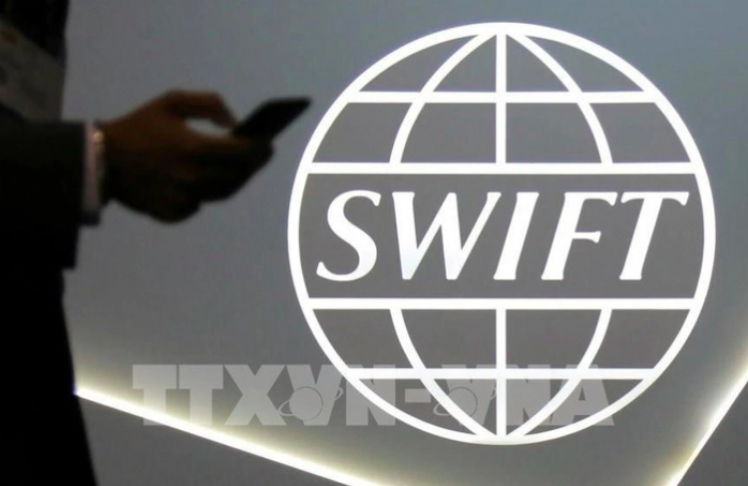Serious impacts not expected in Vietnam-Russian banking cooperation in short-term
Vietnamese businesses in Russia are urged to stay calm and monitor the situation to act accordingly.
Western countries’ new ban that blocks seven Russian banks from using SWIFT has affected Russian banks, but its impacts on Vietnam would remain limited in the short time, according to Vietnam’s trade counselor in Russia Duong Hoang Minh.
| Seven major Russian banks have been cut off from SWIFT. Photo: VNA |
“The escalation of the situation, however, may lead to the entire banking system of Russia being excluded from SWIFT, and the impacts on Vietnam’s banks would be more serious,” Minh told the Vietnam News Agency.
Minh also urged Vietnamese businesses in Russia to stay calm and monitor the situation to act accordingly
Nguyen Hong Thanh, chief of Vietnam trade mission in the Far East, Russia, said the two issues could impact Vietnam’s trade with Russia, namely transportation and the exchange rate of Russian’s ruble.
On March 2, major shipment firms including Maersk Line, KMTC, and MCC announced the suspension of transport routes to Russia, which means Vietnamese goods are no longer shipped to Russia by sea.
Thanh explained a higher appreciation of the US dollar against the ruble would reduce the profit of those doing business with Russia, and lower purchasing power of Russian consumers.
“It would take time for the market to adapt to the new circumstance,” Thanh said.
In the medium and long term, exports to Russia are forecast to decline as the Russians could turn to domestic products.
At the Liublino wholesale market in Moscow, where the majority of overseas Vietnamese are having businesses here, many have temporarily closed their stores due to the surge in the value of US dollars against the ruble.
The high depreciation of the US dollar is making the sale of imported products and goods no longer profitable.












